Background – why nursery school education matters
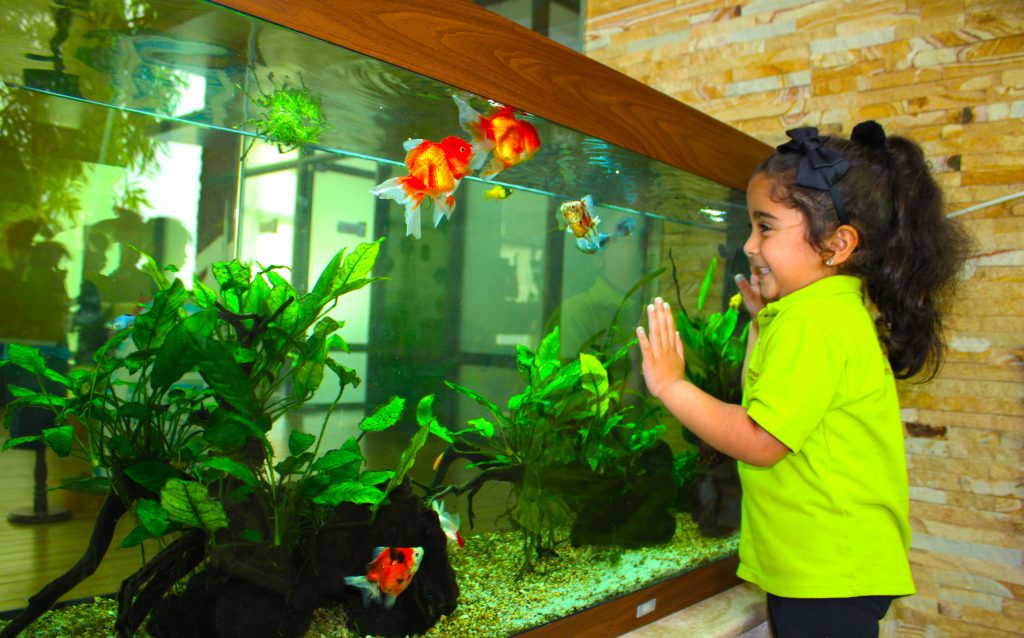
“Our aim is simple. Future International Nursery Dubai was established to ‘give back’ to the parents of Dubai by creating a world class, stand-alone, very unique and comprehensive early years setting and education for children. Our school is deeply embedded within the community and delivers a British EYFS framework education enriched by the UK developed International Early Years Curriculum to create the foundations needed for children to thrive and excel in their later slipstream schooling.
It is our view that, somehow, somehow, the importance of Early Years learning has been forgotten and our role is to put this right for families – and, above all, their children.”Hala Adel, Director, Future International Nursery Dubai
“Even today, At Primary, Secondary and all-through schools across the UAE, parents keep experiencing the need for children to have more support. The truth is simple. It is in the Early Years that the foundations of a child’s education are given life and established. Without these foundations many children will struggle across many parts of the curriculum, including languages, numeracy and core social skills.We believe passionately in nursery education because these gaps should not happen and can be addressed in an outstanding nursery education.
In all-through schools, the focus of schools is taken up by IGCSE. A’ Level or International Baccalaureate programmes. There is simply not enough attention on the Early Years, or the specialist teaching that this curriculum requires.
We live and breathe Early Years learning. Why? Simply because when an early Years foundation is neglected, it is children that pay the price. Children need, and deserve, the foundations of a dedicated Nursery School education, without distractions, because Nursery education is grounded in the needs of children at this young age – and focused without deviation on giving every child the tools they need to ensure that they thrive and excel in the life-long journey in learning ahead of them.”
Lysiane Ruf, Academic Director, Future International Nursery Dubai.
Future International Nursery Dubai captures clearly why an outstanding nursery school education cannot be seen as a luxury, but, rather, should be seen as a critical, unarguably productive, part of every child’s educational journey.
Nursery education really matters.
At its best, it closes the education gap, sets up language skills for children that can never be replicated as successfully at later phases of learning, improves cognitive ability at least at age 7 and potentially through to age 16, scaffolds each child with the panoply of social and emotional skills that found each child’s relating with the world and his or her peers through their education to follow and, in many cases, build supportive networks for parents and children when they are needed most.
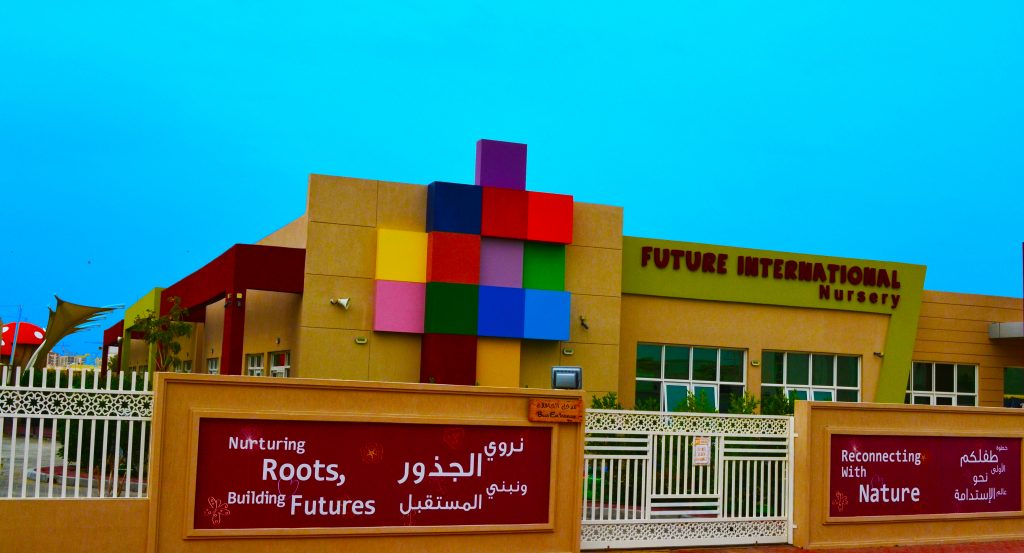
It remains the case that many parents continue to see nursery education as either an unnecessary option that can be sacrificed – or a form of child care.
In the UAE, nursery education takes on an even more urgent role within families who are dependent on nannies. The impacts of this are well documented, but are particularly acute in language development and socialisation. Nursery education, of course, cannot replace the impact of parents at home, but where parents do work, and nannies play a significant role in the upbringing of young children, an outstanding nursery education can re-balance a child’s education to at least match the academic and social skills of those children educated at home directly by one or more parents.
So what do we look for in an outstanding nursery?
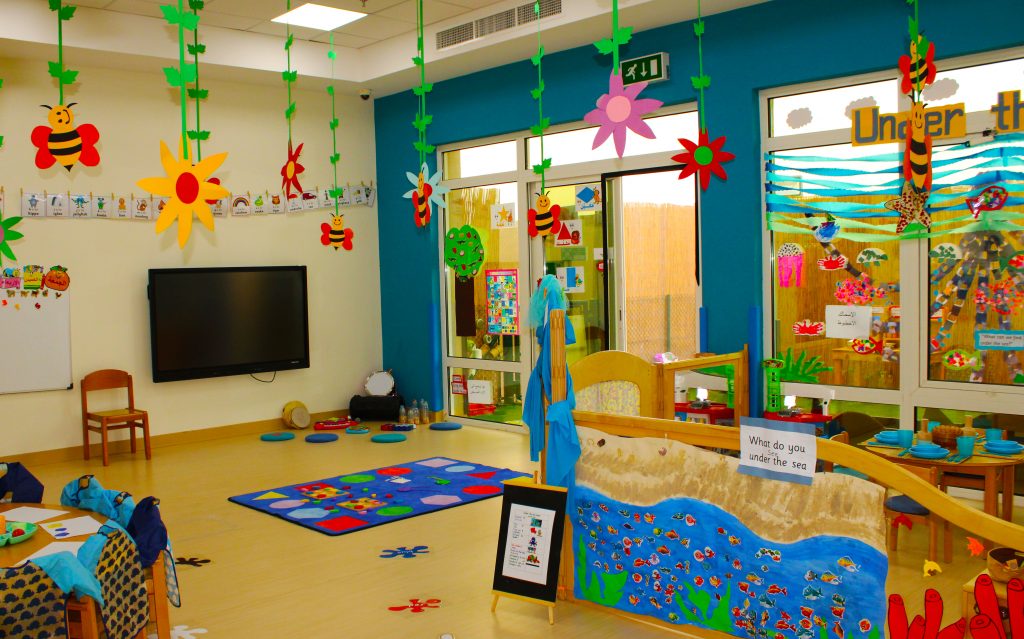
First, we rate purpose-built nursery schools much more highly. They are designed ground-up for meeting the needs of young children rather than, as has historically been too often the case, fitted, often unsuccessfully within villas, retail units or industrial buildings.
Second, we would always look to a nursery meeting the staff to infant/child requirements set down by the British EYFS:
For children under the age of two:
• A minimum ratio of 1 member of staff for 3 children
• One member of staff must hold a “level 3” qualification (the most up to date of which is known as the “Early Years Educator” qualification; half of the other staff must hold a “level 2” qualification (for example an NVQ level 2 in Childcare)
For children aged 2:
• A minimum ratio of one member of staff for every 4 children
• One member of staff must hold a “level 3” qualification; half of the other staff must hold a “level 2” qualification
For children age 3+
• If the lead member of staff is a degree qualified teacher or Early Years professional, a ratio of 1 member of staff for 13 children. If not, a ratio of 1 member of staff for every eight children.
• One member of staff must hold a “level 3” qualification; half of the other staff must hold a “level 2” qualification
Third, in the UAE, we would look specifically to the ways nursery schools scaffold language skills and learning. The single biggest challenge (and by a long way) faced by even the most outstanding all-through and secondary schools in the UAE, is delivering Arabic (and non native) languages to the majority of children. The most outstanding nursery schools set up language acquisition for children before it simply becomes much more difficult, or, as is so often the case, simply too late.
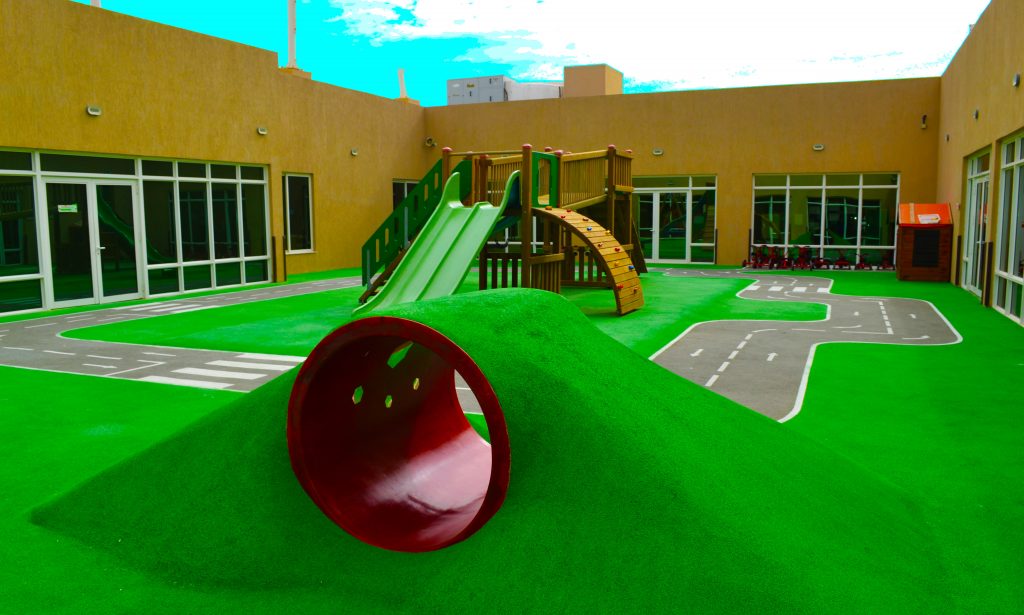
Finally, we look to how nursery schools provide a natural context for child learning away from the dominant “culture of shopping malls.” An outstanding nursery school will seek to provide children with access to nature and the broader outdoor skills that are less easily found in the UAE as say compared with nursery school in the UK, Europe or the US.
In all these respect Future International Nursery delivers – and significantly.
Catchment area and slipstream schools
Future International Nursery Dubai is situated in a large, impressive, purpose built school in Al Warqa 2. Location map follows:
Regrettably, it will be just too far out for many families based centrally or around Jumeirah, for example – but for families in Mirdif it’s very well placed. Al Warqa itself is a new community established particularly for both local families (supported by initiatives of His Highness Sheikh Mohammed Bin Rashid Al Maktoum) and those drawn from the broader international community. The Al Warqa community is, in the main, served by two major nurseries: Future International Nursery Dubai and Emirates British Nursery, both at different sides of Mirdif park.
Slipstream schools cover a range of fee levels and include Repton Dubai (British International Baccalaureate), Taaleem’s Uptown School (International Baccalaureate), Star International (UK), Ignite (USA); and the BEAM schools (UK and USA).
Future International Nursery Dubai evolved from the experiences of the Schools’ owner and Chief Executive Officer, Dr Safa Bukhatir; Academic Director, Lysiane Ruf; and, Director, Hala Adel, at the all-through Future International School in Sharjah over an eight-year period between 2002 and 2009.
In 2009, the first Future International Nursery was established in Sharjah.
After 4 years of planning, the Future International Nursery Dubai was opened in 2016 with 45 children. This doubled by the end of the school’s first year. Today the Future International Nursery Dubai delivers a British EYFS, IEYC enriched, curriculum to some 185 infants, toddlers and young children between the ages of 4 months and 4 years to FS1. The school role is fully international with 50% of children drawn from British, US, Canadian, Chinese and European families, and 50% drawn from the local Emirati community. Children come from a total of 16 different nationalities altogether.
Key benefits of an Early Years education at Future International and how it resolves the “Dubai Paradox”
Future International Nursery Dubai sets out to resolve three key issues faced by Dubai parents:
- First, in the UAE ,there are real set backs for children that result from the amount of time that children spend with nannies. This often leads to identifiable delays in speech, weaknesses in the development of language skills more broadly, delays in social maturation and emotional development and, importantly, the broader cognitive scaffolding children need to set up their education later. This the founders describe as “the paradox of Dubai and the UAE: often the children of wealthy families begin school with many of the disadvantages and symptoms that you associate with children born globally to poorer families in big city inner suburbs.”
- Second, without nursery education, children in British and IB schools simply have not had the dual-language, English and Arabic structures, put in place so that they can more easily excel later. These, the founders argue, should be set in place during Early Years education. In establishing these during the Nursery years, children also gain the ability to much more easily engage with the spectrum of all languages.
- Third, children, without the grounding of a nursery education, are often placed under intense pressure to meet the admissions “testing” and procedures for entry to Tier 1 all-through schools. The result is that many parents engage in “cramming” very young children to meet these tests – something that can be avoided with effective, extended, nursery education over an extended period.
The bigger picture here is that children fortunate enough to be educated in Dubai, whether local or, for example, British or American, are growing up in the heart of the Arabic world with all the potential benefits of their becoming bi-lingual and immersed in international culture. It would be such a wasted opportunity for children not to be given every opportunity to make the most of this advantage over children brought up in less cosmopolitan countries. Both local and expat children can benefit.
Expat children have the opportunity to become culturally open and linguistically bi-lingual.
Local children have the opportunity to both learn English, become culturally open – and learn, and be inspired by, their own language. It is increasingly the case, for local children, that they are brought up by nannies in predominantly English-speaking homes and the result is that their understanding and ability in Arabic suffers.
Future International Nursery Leadership
Founder and CEO, Dr Safa Bukhatir, gained her doctorate in Educational Leadership at the prestigious UCL Institute of Education in London. A computer scientist by training, Ms Bukhatir developed her professional career in teaching before taking on the role of Executive Director of the International School of Creative Science in Sharjah, a role Dr. Bukhatir held for six years. Dr. Bukhatir founded the Future International Nurseries Group almost a decade ago in 2010.
Dr. Bukhatir is described by her faculty to us as a woman who has invested the whole of her adult life impassioned with a belief in the value of education and the conviction that nursery education, and early scaffolding of language skills, is the missing link for children to excel.
The Future International Nurseries were established to give back to UAE families, local and expat, with a world class, stand-alone, unique and comprehensive early years setting and education for children, and one deeply embedded within the community each nursery school serves.
Dr. Bukhatir’s view is that nursery education, somehow, has become the forgotten and missing element of the otherwise outstanding educational system that has been established in Dubai and the broader UAE.
Facilities and Uniqueness
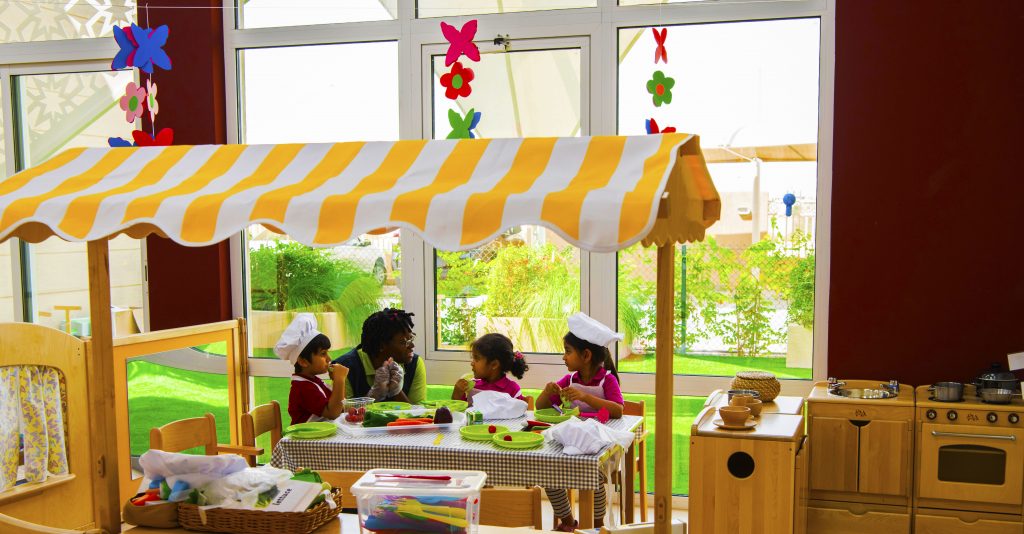
We rate facility provision at the Future International Nursery Dubai as outstanding and Tier 1. Facilities include:
(1) Integration of nature within the fabric of school life. This ranges from the Discovery Centre (which includes local flora and fauna, tropical fish, Starfish and the school’s rabbit) to curricular engagement with the beach and desert through water and sand play. The recognition here is that, unlike, for example, schools in the UK, it is not easy to visit the forests or rolling green hills that give natural context to a child’s formative education. “Children need to understand that there is life beyond the dominant culture of the shopping mall. At Future International Nursery Dubai, re-connecting, or connecting for the first time, with nature is absolutely central to what we do.”
(2) Fully bi-lingual, dual-language teaching infrastructure developed around the US leading model of language development. This provides two classrooms for each “Home” class, one English, one Arabic. All lessons are run jointly by Arabic and English teachers, working closely together to jointly develop the curriculum. Every aspect of education is delivered identically in both languages. Children learn quickly and are inspired.
(3) Dedicated Kitchen providing meals for children without the need or expense of external providers. More importantly, children each week on rotation learn how to prepare their own meals.
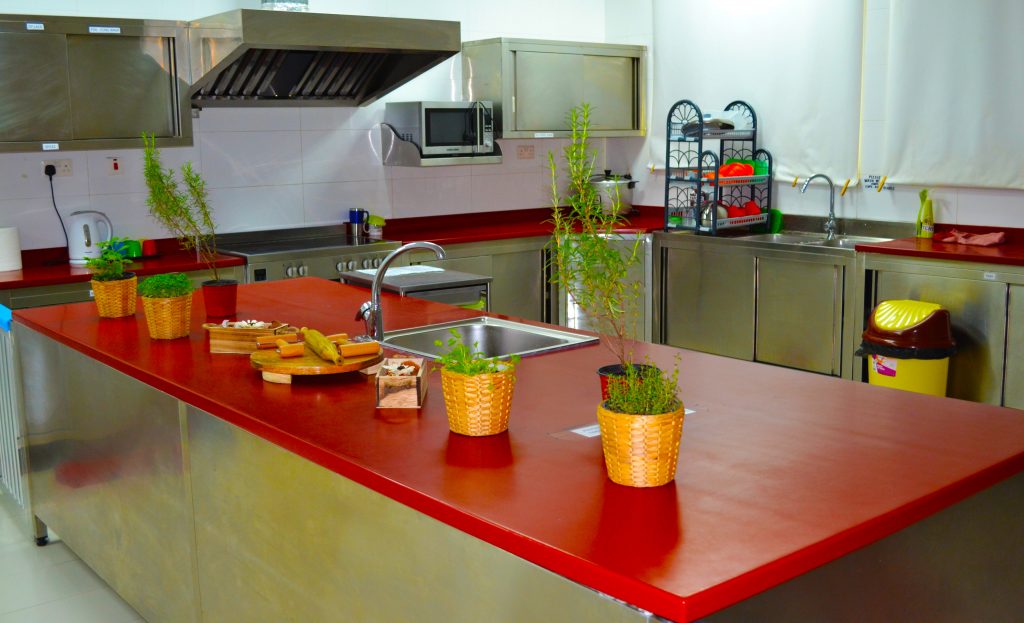
(3) Tier 1 Baby Unit with breastfeeding facilities and expert care.
(4) Percussion room to inspire children with music and leverage the cognitive links with language development
(5) Soft gymnasium with zip line, ball play, soft mats and a broad spectrum of inspiring activities for children to develop motoring skills, engage in play based learning and integrate health and fitness at a young age.
(6) Sensory room with full projection facilities, AV and supporting materials enabling all children to experience and role play near limitless environments, from being underwater to looking at the stars. The facility also enables the school to deliver highly targeted activities able to meet the needs of children of determination.
(7) Outstanding role play “Future Street” facility offering 3 changing role play centres for children to engage their imagination in imagining being, for example, working in a hospital, shop, fire station, news room, kitchen – activities are drawn from the spectrum of human life. The three centres are supported by extensive materials from clothing, to very high quality educational infrastructure and materials.
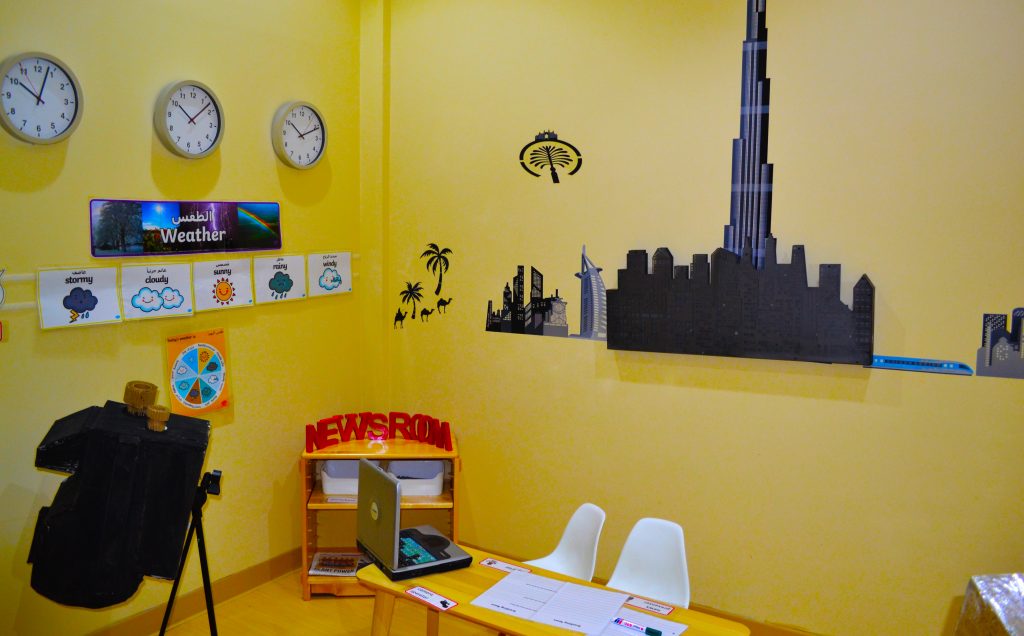
(8) Pattern Making Room where children learn how they can construct or artistically model an infinite array of imaginative or exact designs from a very broad range of high class materials. These activities engage imagination, creativity, language skills, social skills, fine motoring skills and concentration.
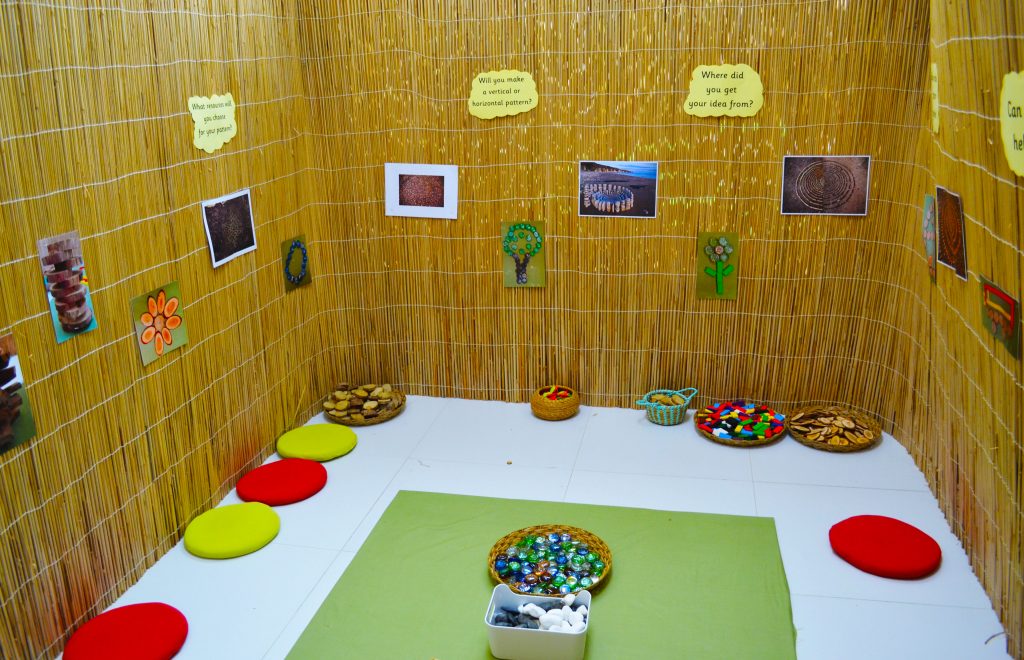
(9) Very high quality school Clinic with full time nursing and visiting doctor
(10) Auditorium with full theatre staging and AV and mirrored ceiling shapes to build each child’s sense of personal identity and understanding of the world.
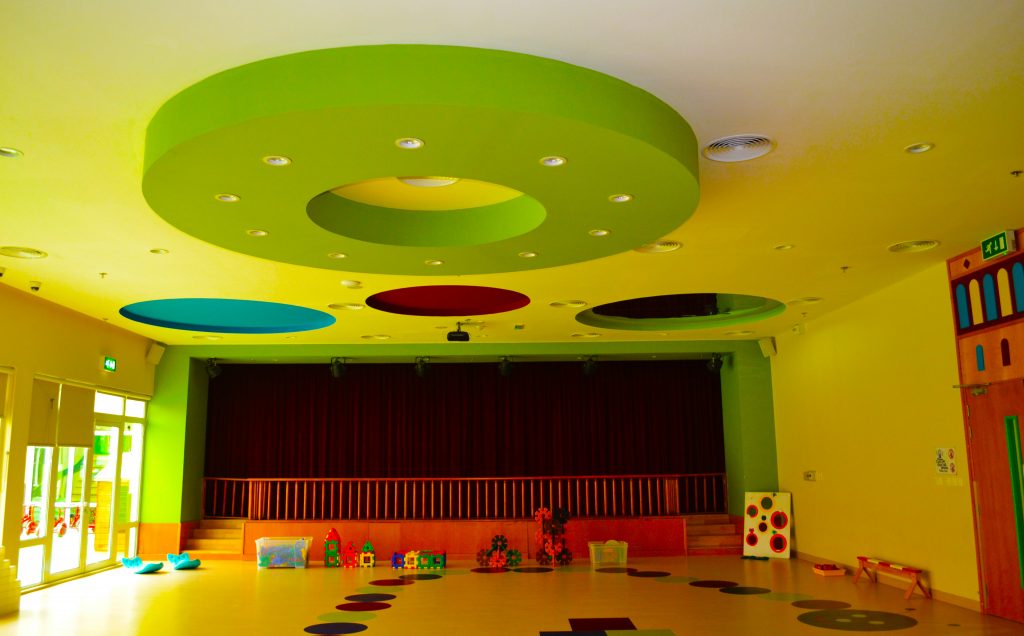
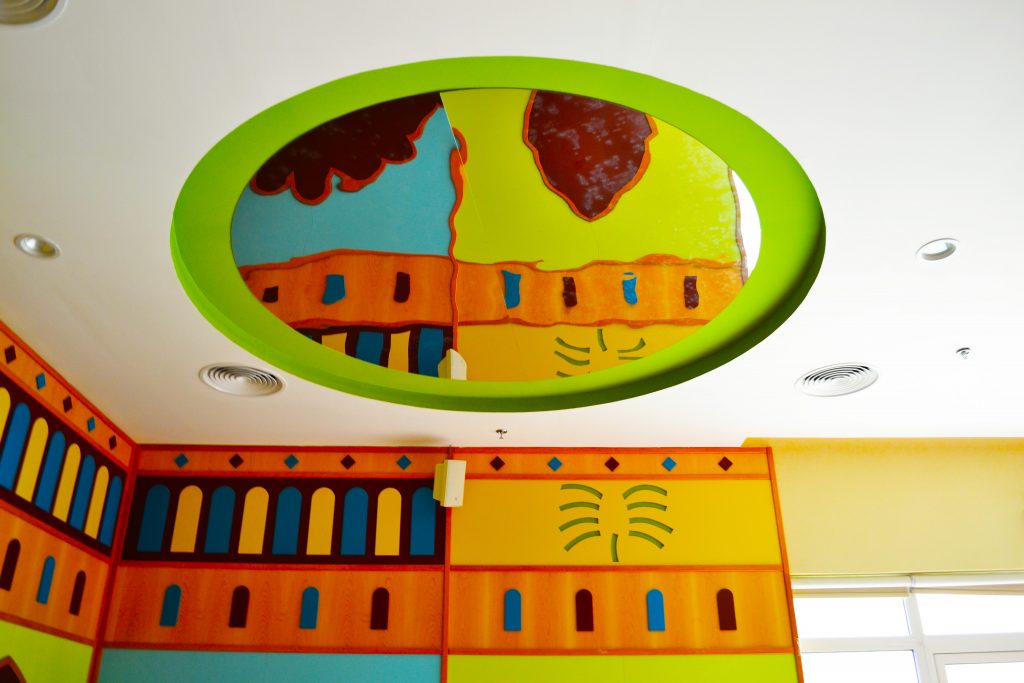
(11) Individually designed free-flow outdoor gardens and play areas for every every set of two “Home” classrooms. Every garden includes sand pits, plant stations, a mud kitchen, lawn area and supporting outdoor play and learning resources.
(12) Dedicated toddler play area
(13) Very high quality central climbing area within the interior school quadrangle.
(14) Dedicated cycling area
(15) Nursery School Forest with extended flowing stream
(16) Splash pool and Swimming Pool area beautifully designed with gardens and giant Toadstool changing rooms.

(17) Visitors and parents play area within a welcoming, high quality school reception area.
(18) Extensive high quality AV and IT resources throughout school classrooms.
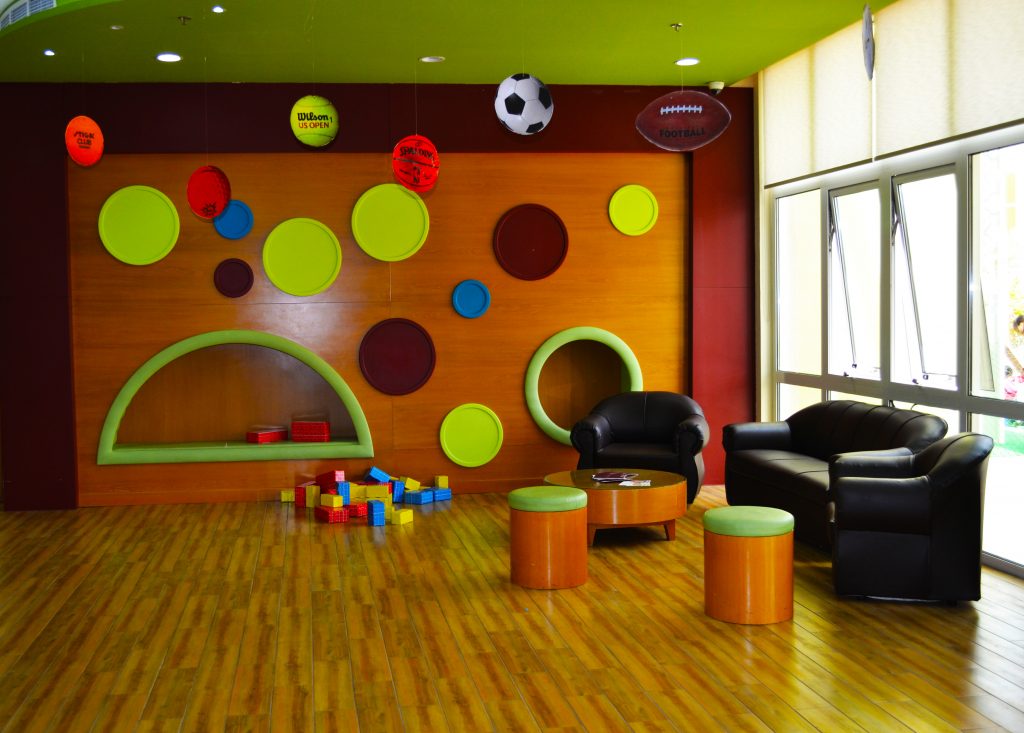
18) Parent Workshops and networking events across the spectrum of issues to help parents with young children
19) specialist teaching for boys and girls to match their natural learning styles. For example, boys are introduced to educational materials that they can construct and re-assemble as a means to teach Mathematics. In this way the natural gender development gap is minimised between boys and girls.
Why language matters in Early Years education – and how it is taught
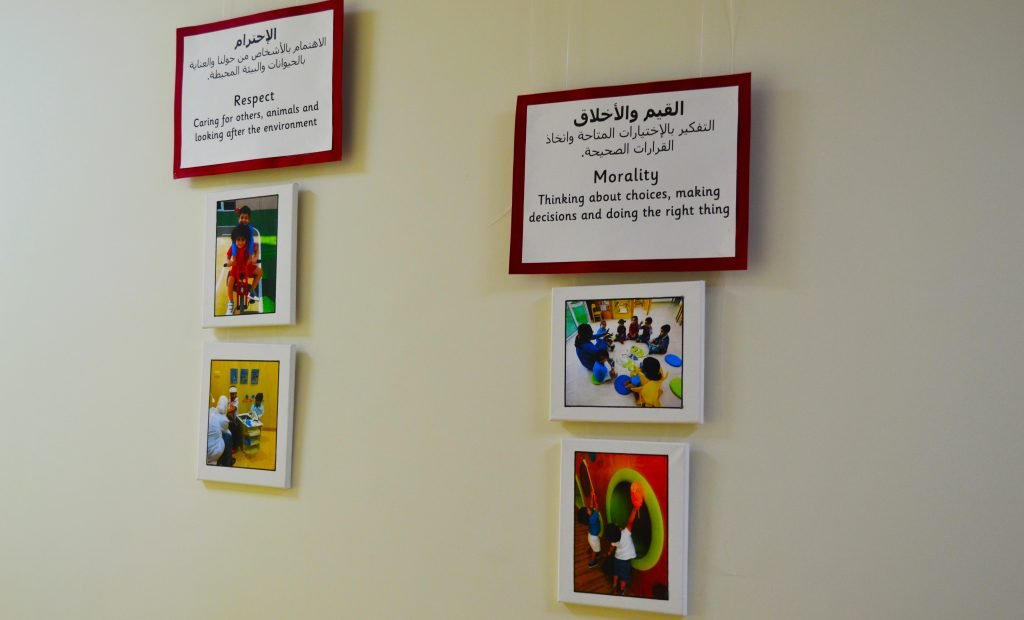
Children at Future International Nursery are immersed in Arabic and English continuously. Structurally, part of the day is taught completely in English, part of the day completely in Arabic – and then part of the day completely bi-lingual. Because the same classes are taught using the same materials (AV, literature, singing and so on), the languages quickly become embedded. A story, for example, will always be read in English and Arabic. Most schools have different classes teaching completely different things in English and Arabic. How is a child supposed to learn from this?
At Future International Nursery Dubai all departments plan together and teach the same topic. The context is always shared. If you want a child to develop bi-lingually, the same experience has to be achieved in English and Arabic. The breakdown is around 60% of time is spent teaching English and 40% of lessons assigned to Arabic. Both Arabic and English children have the same experience in both languages.
In too many schools Arabic is ghettoised and not properly integrated in school life. This gives the message that both English and Arabic are equally unimportant – rather than both being equally important and important in their own right.
The bigger picture here is this:
How does it feel for a local child to be given a message that their (Arabic) language is not important and that English is the only important subject?
How does it feel for a British or other international child to be in a country in which they cannot speak to the local children? If the local language is not taught, or taught weakly, what message does this give about the value of international culture and other nationalities?
The tragedy in schools that do not weight both languages is that both Arabic and English children lose out and bridges are burned instead of being forged.
Faculty and the quality of teaching
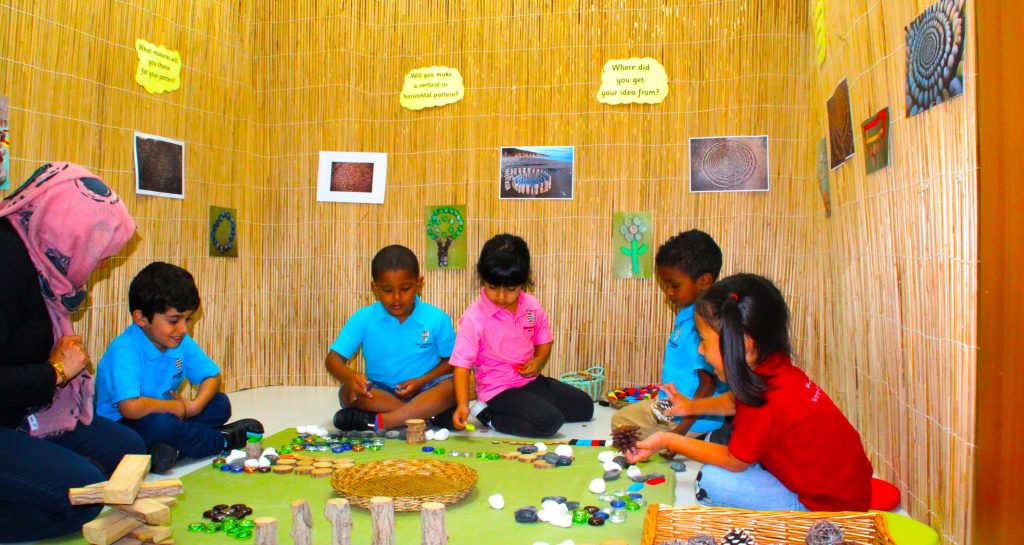
English language lead teachers are fully qualified with BEd, CACHE level 3, or equivalent) and have a proven track record of managing a team. The Level 3 CACHE course is accredited on the Qualifications and Credit Framework (QCF), and provides learners with 15 UCAS Tariff points.
English Language teachers carry a CACHE level 2 Certificate in Early Years Education and Care. CACHE qualifications are qualifications awarded by the Council for Awards in Care, Health and Education – the UK government’s recognised provider of vocational qualifications for those working in the care and education sectors
Teaching faculty are drawn from 12 nationalities including Great Britain, Canada, Jamaica, the United States, Egypt, Jordan, Serbia and the UAE.
All Arabic teaching is carried out in the Fus’ha formal Arabic language.
SEND and Inclusion
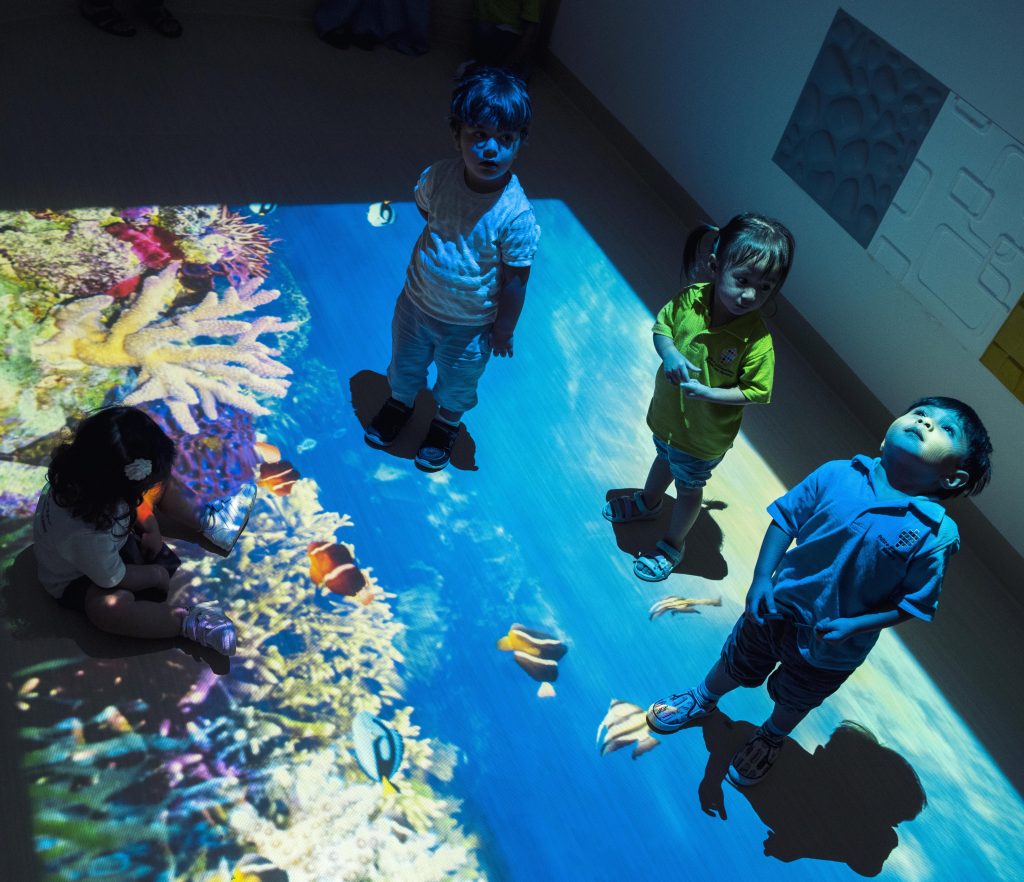
Future International Nursery Dubai is 100% inclusive and seeks never to turn any child away. Fundamental to the philosophy of the school is the absolute conviction that ever child should benefit from an extended Early Years education. The school operates with a maximum of 10% of children of determination in any class – and class sizes and faculty-child ratios are adjusted to ensure that every child received all the attention they require to thrive.
Children of determination are supported by a network of external private specialist centres who visit the school as required by the needs of the individual child.
Timings and Fees
Fees are premium, but in our view the ROI for parents here is exceptionally high. This is a genuine dual-language, structured EYFS school with extensive slipstreams and hugely engaged leadership:
|
|
Per Year |
|
Per Term |
|
|
|
Number of days option |
Standard Fees |
Standard Fees (8 am – 1 pm) |
+Afternoon Clubs (8 am – 3 pm) |
++Extended Afternoon Clubs (8 am – 5 pm) |
Early Bird (Arrival between 7 am to 8 am)* |
|
5 days |
AED 26,200 |
AED 8,733 |
AED 9,781 |
AED 12,227 |
AED 480 |
|
3 days |
AED 22,270 |
AED 7,423 |
AED 8,314 |
AED 10,393 |
AED 288 |
|
Subject |
(AED) |
Important Notes |
|
Application Fee |
500 |
One off payment, non-refundable |
|
Medical Fee |
500 |
Annual charge, non-refundable |
|
Deposit |
1000 |
One off payment |
|
Electronic Access Card Fee |
100 |
One off payment, refundable on return of card |
|
Nursery Uniform |
150 |
Pack of 3 T-shirts (variety of colours available) |
|
Location |
Al Warqa1, 2 and 3 & Mirdif |
Rashdiya / Festival City |
|
Round Trip Service (Two Way) |
7000 AED |
8000 AED |
On its own ambitious terms, we think Future International Nursery offers an early Years education that, in quality and reach, is unequalled anywhere else in the UAE.
The fees above should be seen very much as a guide. Future International Nursery is open year-round for working parents – and timings for classes can be wrapped around the needs of families, for example to include specialised afternoon-only programmes.
Future International Nursery School Dubai – The SchoolsCompared.com 2022 verdict
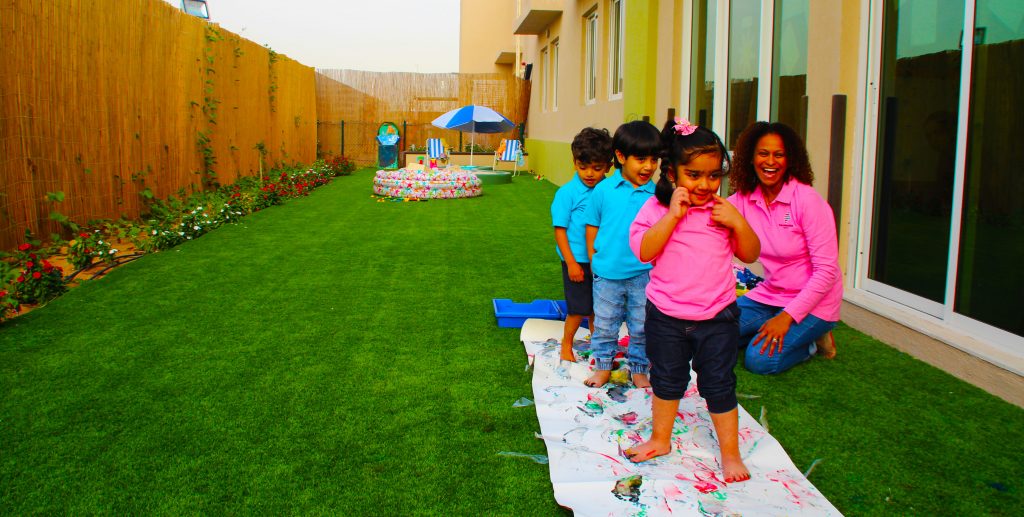
It’s impossible not to be impressed by Future International Nursery Dubai. School leadership is deeply thoughtful, caring and inspired – there is a powerful current of conviction-led education clearly evident here. Children are confident, engaged and communicative. Watching young British children speaking Arabic is something to behold – we have not seen anything like this at other nurseries we have visited. It’s hugely impressive. But it is all children, and the way that they blend between languages, that is the stand-out feature here.
Facilities are impressive from the Disneyland-inspired Toadstool changing rooms to some of the highest quality early learning resources we have seen in nursery schools anywhere in the UAE. The investment here is meaningful and serious. There is nothing missing with facilities ranging from swimming to a simply amazing auditorium, from role play and pattern rooms to children’s engagement in cooking and with nature through rabbits and starfish.
Perhaps the biggest difference from other schools we noted was the extraordinarily warm relationship between Arabic and international staff. There is real and genuine respect, affection and team playing happening here – and the children benefit. Across the board, the Future International Nursery Dubai is intensely joined-up. “Firing on all cylinders” captures the atmosphere perfectly.
Before visiting, we could not have imagined a more powerful example of a nursery able to build bridges between cultures, educate children with all the foundations to be bi-lingual – and provide a home for families themselves to be supported as young parents. This nursery cares. It educates children profoundly. Children brim with happiness. Parents are engaging and engaged.
Ultimately what is being delivered at Future International Nursery is a blueprint of what we think a UAE based, international Early Years education should look like. . It leaves you with a profound sense of “Wow!” It simply does not come better. If there is an argument for the vital importance of nursery education in Dubai, and the wider UAE, this is it.
Future International Nursery was a finalist in the Top Schools Awards 2021-22 for Best Early Learning Centre and Nursery School in the UAE – and came within touching distance of being our overall winner.
VERY highly recommended.
Further Information
Visit the official Future International Nursery web site here.
Direct contact information:
Mail: P. O. Box 36982, Dubai, UAE
Tel +971 4 280 3399
Fax +971 4 280 3210
Mobile +971 56 801 5050
.
Request School Information
© SchoolsCompared.com 2019
Nursery schools are currently not subject to rating by the Dubai Inspectorate of Schools
Private, for-profit
AED 29,205 (5 Days FT)
British EYFS enriched with International Early Years Curriculum (IEYC) (UK) (Fieldwork Education)
Numicon multi-sensory Mathematics
Ben and Betty Phonics
Dual-language English-Arabic
Fully academically and SEND inclusive
In some phases
Capacity: 285 - 324 dependent on child needs
2019: 185 children
Babies: 2:1
Toddlers: 3:1
Nursery 4:1 - 5:1 dependent on the needs of the class
FS1: <8:1 dependent on the needs of the class
Class Size Infants: 12 -15
Class size Toddlers/FS: 18 - 20
International including British, American, Canadian and Arabic
4%
August 2016
Al Warqa 2, Dubai
SEND: up to 10%
Nationalities: 60
Mix: 50% British, American, Canadian, European / 50% local families including Emirati
Mixed, co-educational
Currently 55% boys, 45% girls (2019)
Yes
Owner and Chief Executive Officer: Dr. Safa Bukhatir
+971 (0) 4 280 3399
+971 (0) 56 801 5050
100%
100%
100%
100%
100%
100%
100%
• Outstanding, purpose built British EYFS curriculum, dual-language nursery school
• Outstanding, hugely experienced school leadership deeply committed to Early Years learning, language development and child welfare.
• Exceptionally high faculty to child provision
• Outstanding facilities
• US modelled, bi-lingual language programme – up there with the best we have seen in UAE schools
• Outstanding Early Years slipstream qualifier to top UAE schools
• None















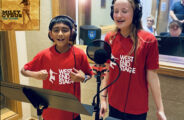



























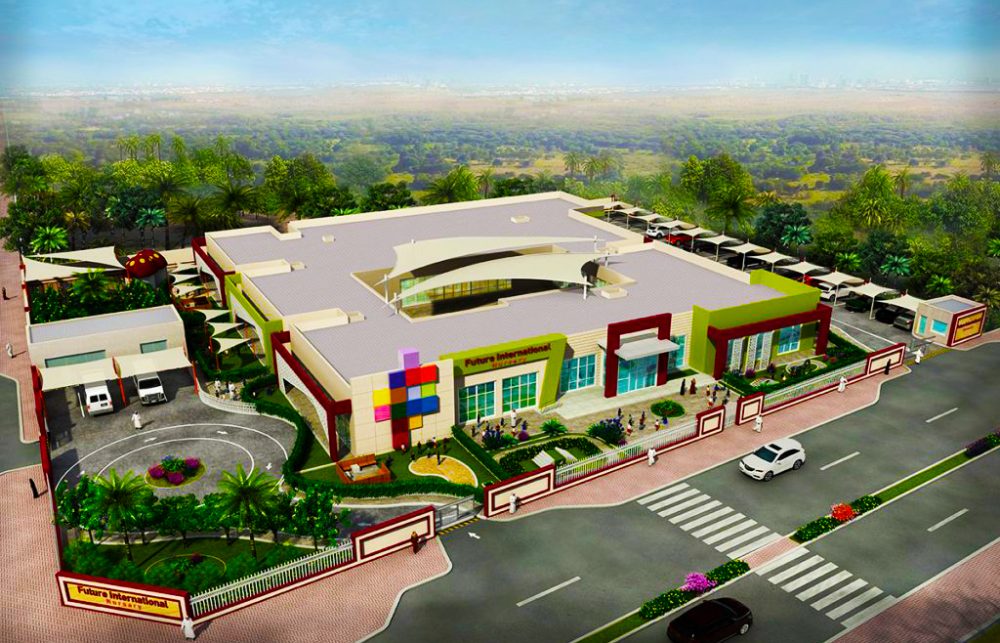

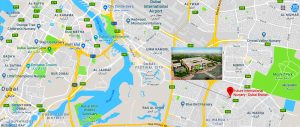
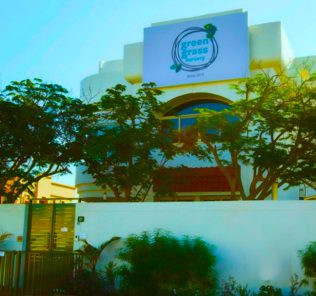

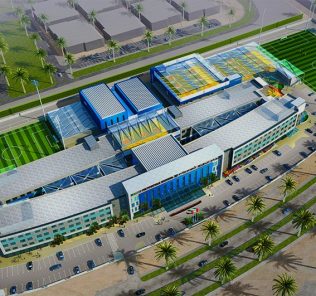
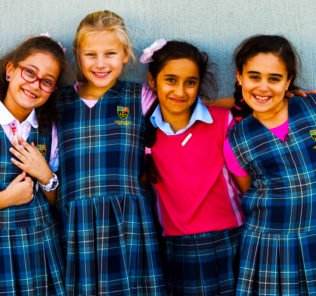
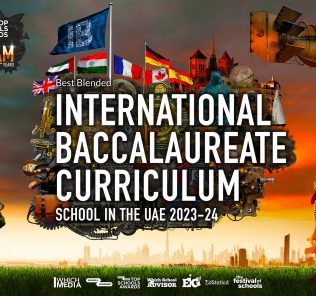
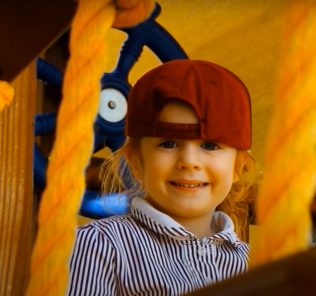
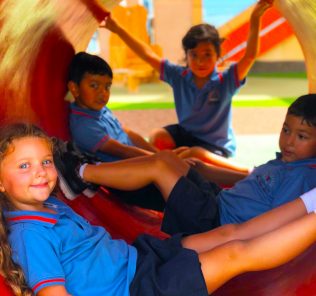

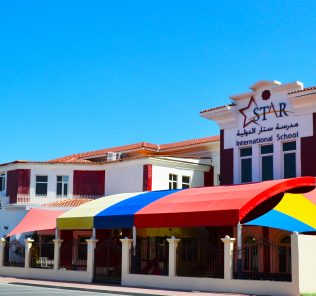
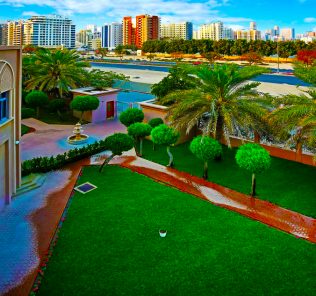
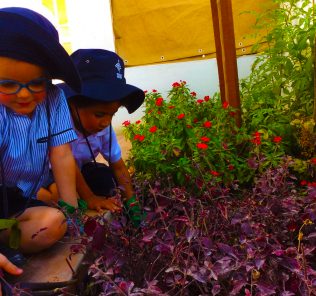
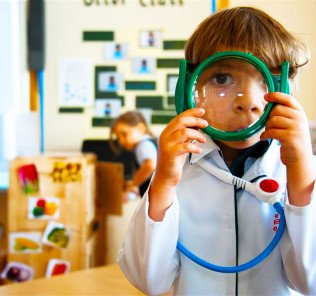
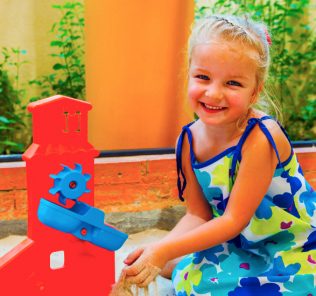
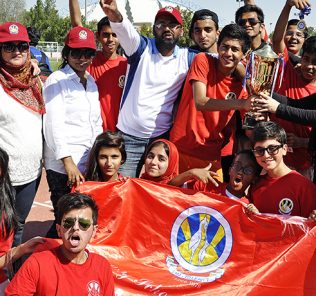
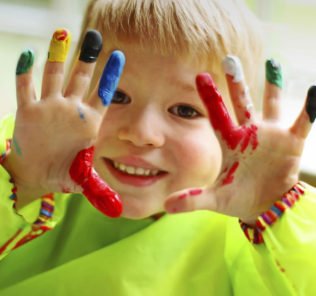












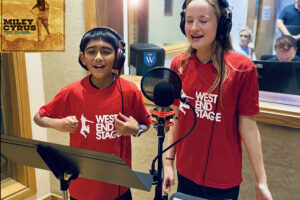
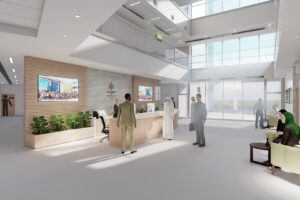
A beautiful nursery inside and out!
This is truly one of the best places my daughter enjoyed and I loved how dedicated the staff are. They were always open to suggestions and only improved as time passed.